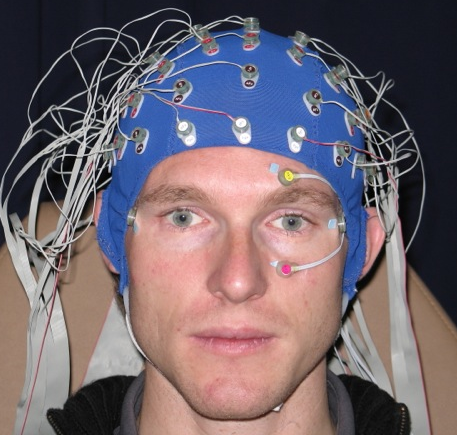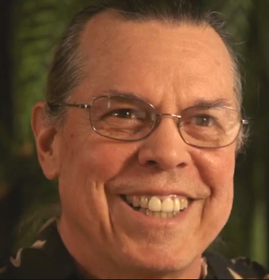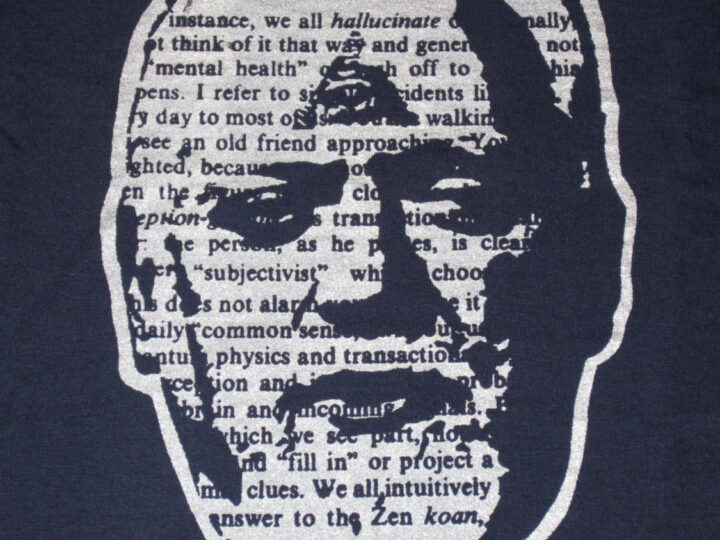
The Mainstreaming of an Underground
Everyone gets worked up about a showdown, especially when the conflict involves colorful characters and positions you really care about. Like many attendees to the conference Cultural and Political Perspectives on Psychedelic Science, I was familiar with the Statement on Open Science and Open Praxis with Psilocybin, MDMA, and Similar Substances, which had been posted earlier this year on Chacruna and elsewhere. The effort was spearheaded by Bob Jesse, a long-time member of the West Coast psychedelic intelligentsia, and a figure whose ethical, intellectual, and big heart bona fides are impeccable. Intervening in the rapidly developing field of psychedelic medicine, the Statement called for a continuing commitment to scientific integrity, data-sharing, and the spirit of service. It also reflected a growing distrust of the for-profit corporate behaviors that have recently been unleashed in the psychedelic space. Though Jesse was too careful to name names, the main sources of concern were two for-profit companies: Compass Pathways, a one-time nonprofit, now moving aggressively into the psilocybin therapy space in Europe, and Eleusis, a less visible but more cheekily-named outfit that has patented LSD for the treatment of Alzheimer’s.
Scanning the list of names who had signed the Statement, I remarked again on something I noted in a somewhat cranky essay I wrote for Erowid Extracts in 2013: that the science of psychedelics cannot be disentangled from the wider and more multifaceted culture of psychedelics—very much including its underground culture(s). My essay was aimed particularly at MAPS, who at that point had already established its current dominance over the space of “important” psychedelic conferences, all of which stressed the legitimating force of science in their titles and content. My main point was that if the “Multidisciplinary” in MAPS’ name was going to count for anything beyond a groovy brand, the organization had to actually open the doors of the discourse it managed to disciplines other than science and clinical research. Though trained in the humanities myself, I was particularly concerned with the social sciences, which I hoped would provide some of the critical, contextualist, anthropologically-informed, and politically sophisticated correctives to the mainstream juggernaut of individualistic psychedelic pharmaceuticals already in motion.
MAPS has since come to open up more space for social science and plant medicines at its large and very successful conferences, and we are all better for it. Much of this has been the doing of Chacruna’s own Bia Labate who, not coincidentally, was the guiding force behind the Cultural and Political Perspectives conference at CIIS. Here clinical and neurological discourses were pushed temporarily to the side, as conference presenters wrangled with a myriad of other questions, problems, and concerns that need to be addressed if psychedelic science is, again, going to be both genuinely multidisciplinary and fully engaged with the issues of social justice, representation, and political economy that are roiling our times.

Though the immediate purposes of the Statement for Open Science had little to do with social science proper, the document is also an important sign of the multiple communities and discourses that still make up psychedelic authority today. Though it was mostly signed by clinicians, scientists, and other researchers associated with institutions like Johns Hopkins, NYU, Heffter, MAPS, and Imperial College, the Statement also earned the support of underground elders, like Ann Shulgin, Kat Harrison, and Ram Dass (OK, Ram Dass got a PhD but only when he was Richard Alpert…). And though Bob Jesse played an instrumental role in the research at Johns Hopkins, he is not a credentialed scientist but a tech-head and organizer who also founded one of the Bay Area’s longest-running spiritual dance collectives.
The reason I am highlighting the underground roots of some of these signatories has to do with the question of values. While the values expressed in the Statement align with Western science at its most ethical and idealized, the reality is that most “science” today is capitalism and technology in action: intellectual property rights, biased corporate-sponsored “studies,” backscratching business-university couplings, and extraordinary rivalry for status and funds. Moreover, the public rhetoric of “science” also continues to play a role in repressing perspectives—including indigenous and “spiritual” points of view—that are not easily quantified or integrated into a reductionist framework. This is why, for example, MAPS conferences were once essentially restricted to presenters with degrees. In the world of institutional science, optics matter, and the optics are restricted to the performance of licensed rationality.
And here is the thing about the psychedelic underground: for decades, both science and “r & d” (research and development)—not to mention spirituality and healing—were practiced by outlaws. The institutional forces that dominate the knowledge and healing practices of modern society were kept at one remove (if not two or three), though the profit motive was not. Some of these underground individuals—but by no means all—made money producing and selling scheduled substances, and sometimes novel drug preparations. But profits alone do not capitalism make, and many of the writers, healers, freaks, and wizards who made up the underground, and who gathered at earlier psychedelic conferences, were centrally concerned with the values of the Statement: information sharing, mutual respect, service to the broad tribe of users, a disregard for the institutional rules of capitalism (but, again, not necessarily the market), all tied up together with a sort of Dionysian libertarian ethos that one might characterize as the integrity (and the pleasure) of thieves.
These somewhat idealized and nostalgic thoughts were stirred up recently when, in the weeks leading up to the CIIS conference, the DMT Nexus’ David Nickles began using his human bullhorn powers to call out hypocrisy in some of the signatories of the Statement. Nickles particularly set his sights on Rick Doblin, who has been working in some still rather unclear ways with Compass, including strategy discussions, the coordination of training programs, and the possible joint sharing of research and study sites. (George Goldsmith, the head of Compass, has also described himself as a MAPS consultant.) While the Statement is non-binding, Doblin’s cooperation looks like a double standard. It is true that other signatories to the Statement, including Johns Hopkins’ inestimable Bill Richards, were also working with developing therapeutic protocols with the company, work that Doblin claimed Roland Griffiths supported. Later, Jesse took the podium to correct this claim, pointing out that Griffiths has expressed reservations about cooperation with Compass.
By focusing on MAPS rather than Griffiths, Nickles kept the question of the values of the Statement (rather than narrower therapeutic outcomes) in play. The DMT Nexus, after all, is a paragon of underground science, a full instantiation of the outlaw research values described above. MAPS, on the other hand, absolutely needs to visibly turn its back on this legacy to succeed. This has put the organization in the awkward—if nonetheless very successful—position of digging into the hearts (and pocketbooks) of underground psychedelic enthusiasts, while dragging everyone into the garish mainstream light of regulation, big money trials, insurance plans, professional agencies, and a normalizing discourse that requires the marginalization of earlier and more unruly psychedelic authorities, visions, researchers, and community values.
Nickles and Doblin appeared in a panel aptly titled Capitalism’s Systemic Issues: Will They Emerge in Psychedelic Medicine and Practices? Bob Jesse began the panel with a cautious and sensitive presentation of his motivations in crafting the Statement. Without going into particulars, he expressed anxious concerns about the inherent dynamics of for-profit companies, who, in their mandated responsibility to shareholders, are required not only to bring the best products possible to market, but to “interfere” with potential rivals. Here Jesse was most likely thinking of the Usona Institute, a 501(c)(3) outfit, on whose board of directors he serves, which is designed to maximize the therapeutic potential of psilocybin at the lowest possible cost to patients. Imagining a world where both Usona’s board and Compass’s shareholders are grinning ear to ear is, needless to say, challenging.
Jesse’s concerns were largely pragmatic, and keyed to an anxious but well-deserved understanding of how capitalism works on the ground. Rick Doblin followed up with more pragmatism, but from the other side. Given his perennially cheery view, which has never seen a conflict it can’t ameliorate with a smile, it is unsurprising that, where Jesse sees the potential for destructive interference, Doblin sees a garden where a thousand flowers—including for-profit ones—may bloom. But Doblin has spent decades intelligently and idealistically navigating these regulatory and institutional questions, and MAPS’ path to success is very solid. He discussed some of the ins and outs of intellectual property in regards to psychedelics, and outlined MAPS’ anti-patent strategy and its attitudes towards data exclusivity, the sharing of protocols, and insurance machinations. He reiterated their plan to produce medicines through a Public Benefit Corporation that, using the relatively newish tool of benefit corporations, combines for-profit mechanisms with a commitment to social good.
Nickles’ problem, however, is less with MAPS per se, but rather with who it considers its friends. (Deep divers into underground lore may recall the case of John Halpern here.) In discussing Compass, Doblin did not address any of the larger, systemic problems with capitalism, pharmaceutical companies, or the current therapy regime. Nor did he address the distinct possibility that these mainstreaming forces may significantly corrode the global transformative potential for psychedelics at this tense juncture in the planet’s history. This is because, as a pragmatist, he made his pact with “the System” decades ago. Doblin seems to genuinely believe that large-scale global transformation will occur by getting these substances into the nervous systems of people on an individualist basis under the current regime. What is important is the delivery of the medicine more than the motives of the deliverer. At one point, while discussing Compass, Doblin made an interesting verbal slip—though he wanted to say “they,” he said “we” instead. Translation: for MAPS’ global effort to succeed, even in its largely nonprofit terms, corporate players (and the shareholders behind them) are part of the team.

This is not a comfortable stance for those of us who believe that, as Nickles later put it, today’s dominant culture is not a reality to be accommodated, but an existential threat to be resisted. Along these lines, Geoff Bathje followed up Doblin’s presentation by repeating arguments against capitalism familiar to anyone who has been paying wide-screen attention to the political landscape in recent years. His strongest points concerned the way that psychedelic therapy, applied as “solutions” to individual psychological problems rather than broader social conditions, risks simply feeding into the self-improvement logic that increasingly underscores capitalist subjectivity, and that has already shown a remarkable capacity to absorb, defang, and redirect potentially transformative practices like yoga and mindfulness meditation. In this way, psychedelics may—and already are—contributing to the cancer that Bathje calls “elite perfectibility.”
With firebrand fervor, Nickles followed up on these sentiments, but with the passion of an Occupy veteran. He drew attention to the inequities and iniquities of late-stage capitalism, asking those of us who consider ourselves responsible for the shepherding of psychedelics into the larger world to consider what we are signing up for in making a pact with the medical model and the “respectability politics” that accompanies it. He also took pointed digs at some of MAPS’ more outrageous rightwing funders, like Rebecca Mercer, and argued that the fact that the notorious Peter Thiel has invested in Compass suggests, with apocalyptic clarity, that the mainstreaming of “psychedelic medicines” is already bound up with an authoritarian military-industrial-medical framework that does not have the world’s best interests at heart.
Nickles is a radical, and Doblin is not. Indeed, it is rare to find such a diversity of political views in an academic panel. What are we to do with such divergence? The usual social media-abetted strategy is to choose a side and drill down on the enemy with hysterical intensity. But there is also a more ecological approach, one that recognizes that politics is a complex system, not a game of winner-take-all. As the human endeavors of psychedelic science and psychedelic culture continue to grow, bifurcate, and complexify, the field itself grows more multidimensional—and more genuinely multidisciplinary. Nickles drew necessary attention to many crucial issues with an understandable urgency, and this sort of critical work will inevitably pull and tug on other centers of power, forcing at least some of them to shift their practices (or at least their self-presentation). You don’t have to agree in toto with his grim account of apocalyptic capitalism to recognize the positive and pragmatic effects that such rabblerousing may have on other organizations, thinkers, and companies as psychedelic science takes further steps toward the emerging cognitive regimen of psychedelic medicine. Efforts like the Statement, and Nickles’ impassioned attacks, probably won’t keep us out of the swamp, but they may help keep higher psychedelic values afloat.
This important panel was also a wake-up call. The “psychedelic community”—which no longer really exists as a singular entity, if it ever did—can no longer pretend that the process of mainstreaming is a purely positive, hope-for-humanity development that is separate from the larger crises of capitalism, militarism, authoritarianism, and the intensification of technological control over subjectivity. The values and motivations that once drove a strange, heretical pocket of the druggy world are now deeply woven into the larger, crisis-saturated world we all now claustrophobically share. The mainstreaming of psychedelics may well be a positive force in this chaotic and collapsing world, but it won’t become so by simply smiling and shaking hands with the sharks that are already circling.
The very multidimensionality of the field may still be its saving grace. For all their social power, medical approaches will never entirely dominate the meaning of psychedelics, which also manifests in explicitly religious, recreational, productivity-enhancing, and intensely freethinking forms. As Jesse and Doblin both pointed out, the immense amount of written material that already exists about psychedelics—including by underground researchers—already precludes the range of possible patent moves by hostile or greedy players. And the continued existence of a robust black market, blockchained or otherwise, suggests that, while idealistic nonprofit approaches to aboveboard psychedelic therapy may have to fight it out in a marketplace more bitter and brutal than it should be, other avenues toward the world of the allies will remain open.
In the case of psilocybin, these avenues are widely distributed and painfully difficult to control. A few browser clicks will reveal cheap and easy routes of home production, supported by robust online communities along the lines of the DMT Nexus, to say nothing of the wide geographic distribution of shrooms growing in the wild, the eternal haunt of heretics and bored teenagers alike. This decentralized web of psilocybin production—so weirdly mirrored in the structure of mycelium itself—is all the ever-changing tribe of outlaws and freethinkers needs. Magic mushrooms are now in the light, but they will always grow best in shadow.
Note:
This paper provides a comment to the conference Cultural and Political Perspectives in Psychedelic Science, a symposium promoted by Chacruna and the East-West Psychology Program at the California Institute of Integral Studies (CIIS), San Francisco, August 18–19, 2018.




